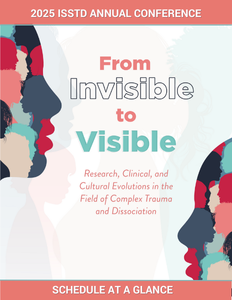Back
Posters
Poster Judging Hour
I Need Olivia Benson: College Student & Employee Perspectives & Beliefs About Sexual Violence
Friday, March 14, 2025
6:00 PM – 7:00 PM US Eastern Time
Learning Level: Beginning
- LR
Laksana L. Rachman
Researcher
Bentley University
Waltham, Massachusetts, United States - AS
Arielle Scoglio, PhD (she/her/hers)
Assistant Professor
Bentley University
Waltham, Massachusetts, United States
Abstract
The term “rape culture”, in a higher education context describes an environment in which sexual violence is accepted or tolerated as part of campus life. Prior exploration of rape culture has largely focused on sexual violence within student populations; limited work has examined perspectives of university staff. Risk factors, such as problematic substance use and sexist prevention strategies, have been identified as aspects of rape culture which help maintain an environment where sexual violence occurs. This qualitative study had multiple aims. First, we sought to further identify cultural norms and beliefs in college settings which increase the risk of sexual violence or guard against it. Second, we sought to expand past work by integrating perspectives from multiple stakeholders within the campus community: students, faculty, and staff. Our analysis included 4 focus group transcripts (35 participants total, including 17 students and 18 faculty and staff) from one University in the Northeast United States. Participants were asked a series of questions about their personal perspectives and views about on-campus sexual violence. Each group had 2 facilitators, 8-10 participants and lasted approximately 1 hour. Audio-recordings of the focus groups were transcribed, and all authors met to develop a preliminary codebook based upon the focus group guide questions. Two coders examined employee and student transcripts separately and expanded the codebook using open and axial coding techniques. Three main themes and several subthemes were identified, including: cultural risk factors for sexual violence (substance use, misogyny, dismissal/silence, institutional indifference), expanding accountability (bringing perpetrators to justice, holding individuals and institutions tasked with stopping sexual violence accountable, and holding peers liable for their behavior), and stigma reduction strategies (activism and clear disclosure channels for community members). Findings have implications for future research and for prevention and response efforts around sexual violence in higher education campuses. Specifically, this work highlights the role of all types of community members in shaping campus culture and specific strategies which may contribute to the demolition of rape culture. Although students, faculty and staff all brought distinct perspectives, many participants agreed on risk factors of sexual violence within university culture and positive factors that worked against these risks. Our participants expressed ways that traditional conceptualizations of accountability could be expanded, and rape culture incrementally dissolved in a college setting.
The term “rape culture”, in a higher education context describes an environment in which sexual violence is accepted or tolerated as part of campus life. Prior exploration of rape culture has largely focused on sexual violence within student populations; limited work has examined perspectives of university staff. Risk factors, such as problematic substance use and sexist prevention strategies, have been identified as aspects of rape culture which help maintain an environment where sexual violence occurs. This qualitative study had multiple aims. First, we sought to further identify cultural norms and beliefs in college settings which increase the risk of sexual violence or guard against it. Second, we sought to expand past work by integrating perspectives from multiple stakeholders within the campus community: students, faculty, and staff. Our analysis included 4 focus group transcripts (35 participants total, including 17 students and 18 faculty and staff) from one University in the Northeast United States. Participants were asked a series of questions about their personal perspectives and views about on-campus sexual violence. Each group had 2 facilitators, 8-10 participants and lasted approximately 1 hour. Audio-recordings of the focus groups were transcribed, and all authors met to develop a preliminary codebook based upon the focus group guide questions. Two coders examined employee and student transcripts separately and expanded the codebook using open and axial coding techniques. Three main themes and several subthemes were identified, including: cultural risk factors for sexual violence (substance use, misogyny, dismissal/silence, institutional indifference), expanding accountability (bringing perpetrators to justice, holding individuals and institutions tasked with stopping sexual violence accountable, and holding peers liable for their behavior), and stigma reduction strategies (activism and clear disclosure channels for community members). Findings have implications for future research and for prevention and response efforts around sexual violence in higher education campuses. Specifically, this work highlights the role of all types of community members in shaping campus culture and specific strategies which may contribute to the demolition of rape culture. Although students, faculty and staff all brought distinct perspectives, many participants agreed on risk factors of sexual violence within university culture and positive factors that worked against these risks. Our participants expressed ways that traditional conceptualizations of accountability could be expanded, and rape culture incrementally dissolved in a college setting.
Learning Objectives:
At the conclusion of this session participants will be able to:
- Identify cultural risk factors for sexual violence present in college campus settings
- Describe specific strategies for expanding accountability and reducing stigma in the context of sexual violence in college settings
- Discuss implications of qualitative research that includes multiple campus community member groups for prevention and response efforts to sexual violence in higher education
- Describe multiple types of accountability as it relates to sexual violence in higher education
- Identify cultural norms and beliefs that may guard against sexual violence in college campuses

